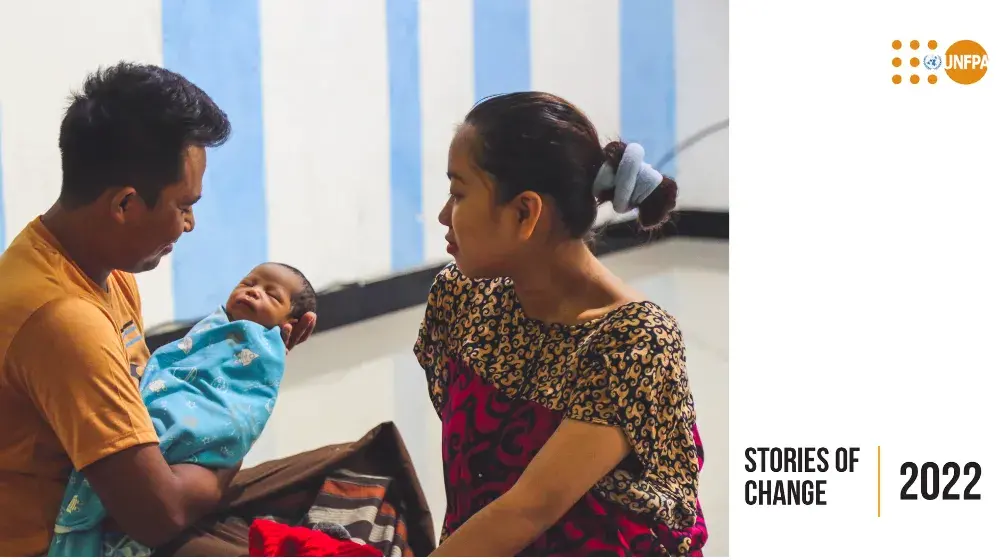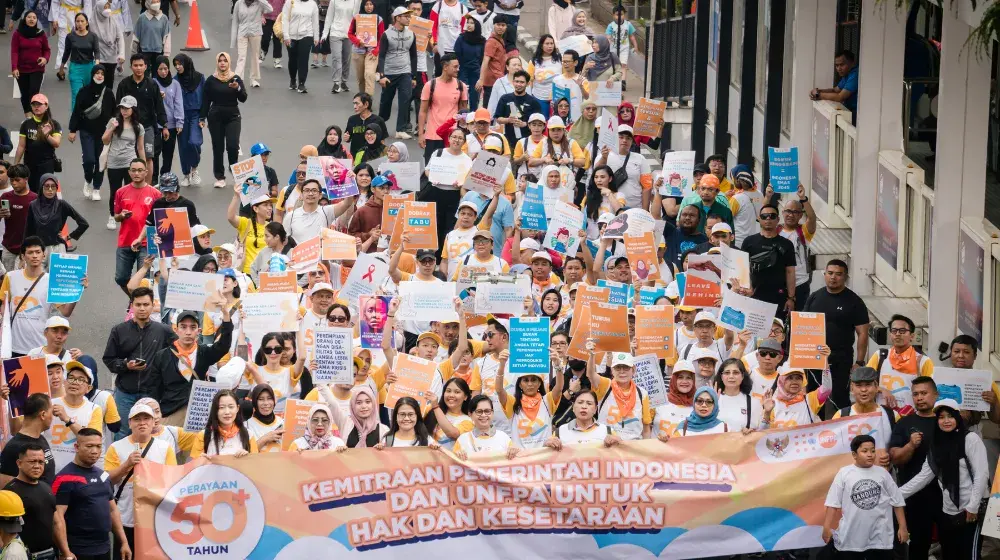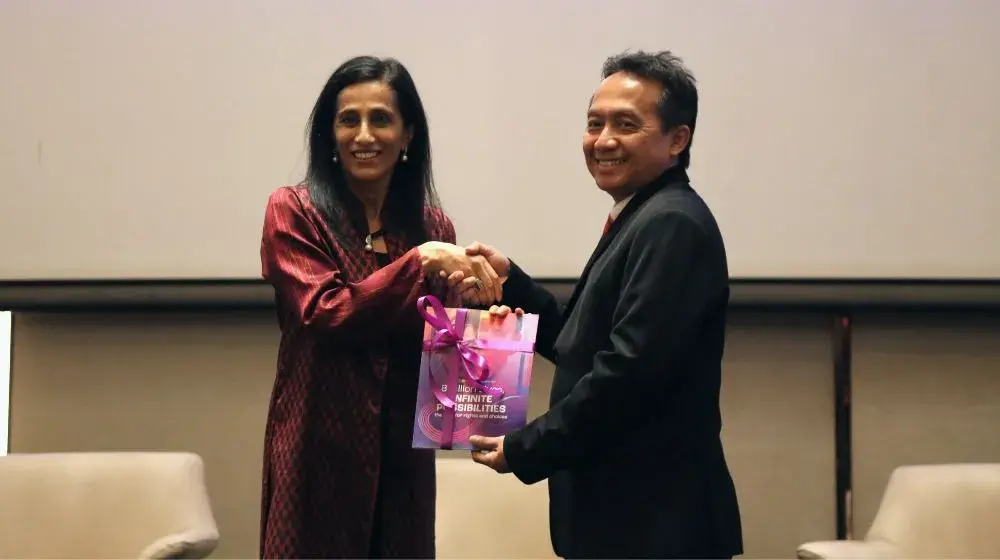PRESS RELEASE - FOR IMMEDIATE RELEASE
State of World Population 2012: “By Choice, Not By Chance – Family Planning, Human Rights and Development”
The right to voluntary family planning should be accessible to all, says UNFPA report
Jakarta, 14 November 2012 — The right to access family planning is widely recognized in the global community, but denied to millions around the world. The costs of ignoring this right include poverty, social exclusion, poor health, and gender inequality, according to a new report by the United Nations Population Fund (UNFPA). “State of World Population 2012: By Choice, Not By Chance: Family Planning, Human Rights and Development,” released globally on 14 November, calls upon governments, international organizations, and civil society to promote family planning as a fundamental right. The report presents evidence that investment in family planning yields profound social and economic benefits for families, communities, and countries.
UNFPA Executive Director Dr. Babatunde Osotimehin stated that a rights-based approach to family planning can produce extraordinary results. “Millions more women have become empowered to have fewer children and to start their families later in life, giving them an opportunity to complete their schooling, earn a better living, and escape the trap of poverty,” Osotimehin writes in the report’s foreword. Dr. Osotimehin emphasized that evidence shows how family planning, when integrated into broader economic and social development initiatives, has a positive multiplier effect on human development and nations’ well-being.
According to the report, there are 1.52 billion women of reproductive age in the developing world. An estimated 867 million of them need contraception, but only 645 million are currently using modern contraceptive methods. Of the 80 million unintended pregnancies that are projected to occur in 2012, most – 63 million – will occur among the 222 million women with an unmet need for modern contraception. Half of the estimated number – 40 million – will likely end in abortion.
“This is inexcusable. Family planning is a human right. It must therefore be available to all who want it. But clearly this right has not yet been extended to all,” stated Dr. Osotimehin. “The international community made a commitment in 1994 to all women, men, and young people to protect their rights as individuals to make one of life’s most fundamental decisions. It is high time we lived up to that commitment and made voluntary family planning available to all.”
UNFPA Representative in Indonesia Mr. Jose Ferraris affirmed the agency’s commitment to providing technical support to the government, NGOs, and private sector partners on family planning, population data, and other areas of its mandate. “In this (SWOP) report, we lay out pathways for positive action that governments, international organizations, and civil society should pursue. These are steps that ensure everyone has the power and the means to decide freely and responsibly how many children to have, and when to have them. This is what we mean when we speak of family planning as a fundamental right.”
Coordinating Minister of Social Welfare Dr. Agung Laksono officially opened the 2012 State of World Population Report’s launch at Jakarta’s Intercontinental Hotel. In his opening statement, Dr. Agung reiterated government’s commitment to the national family planning programme, amidst the often-challenging political and socio-economic dynamics of decentralization. “Family planning programmes have a very strategic place and are to be implemented in a sector-wide approach,” he added.
Acting Chairperson of BKKBN Subagyo cited three reasons for the continued importance of population and development to Indonesia: It is the world’s fourth most populous country; the nation’s total fertility rate, 2.4 children per woman, can still be considered a relatively high number; and lastly, Indonesia’s natural population growth adds an additional 4.6 million people every year. Subagyo framed UNFPA’s launch of the SWOP report an opportunity to develop population and family planning programmes that “respond to the challenges of human rights and development issues.”
The launching ceremony was followed by a panel presentation comprised of Mr. Stan Berstein, Dr. Julianto Witjaksono, Ms. Ninuk Widyantoro, and Dr. Ascobat Gani.
For further information, contact Mr. Samidjo, National Programme Officer for Advocacy at UNFPA Indonesia by email (Samidjo@unfpa.org) or mobile phone (+628121068328); Ms. Puji Maharani, Communications Assistant, by email (maharani@unfpa.org) or mobile phone (+6285624771055); or Mr. Purwo Evalianto, Head of the Public Opinion Analysis Section at BKKBN’s Public Relations Division, by email (purwo.evalianto@bkkbn.go.id) or mobile phone (+62818154417).
Tags: SWOP, Family Planning, Reproductive Health, Population




